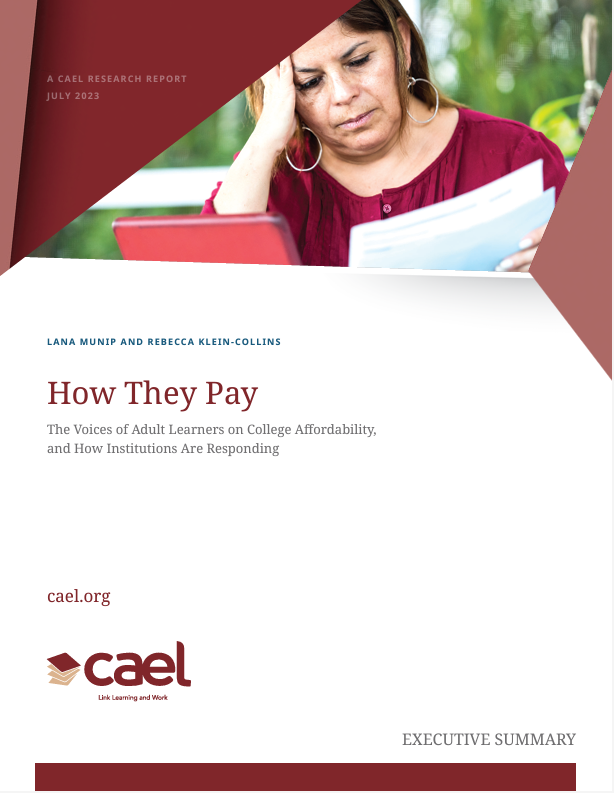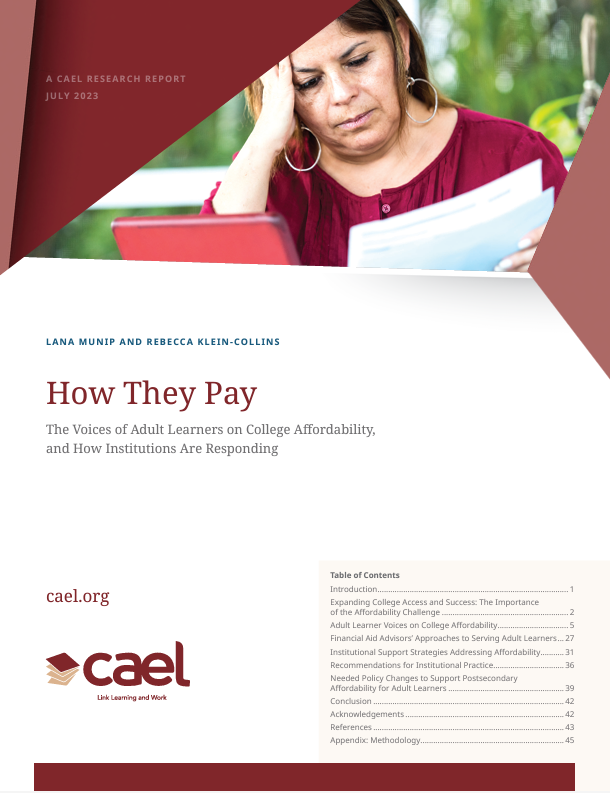July 2023: Lana Munip & Rebecca Klein-Collins
How They Pay
The Voices of Adult Learners on College Affordability, and How Institutions Are Responding
As student loans, the cost of college tuition, and even value of higher education remain at the forefront of public discussion, one thing remains true: Affordability is central to adult learners’ academic success, and money is one of the primary reasons why adult learners stop out before they graduate.
How can postsecondary institutions, employers, and policymakers address this issue? CAEL’s latest report How They Pay: The Voices of Adult Learners on College Affordability, and How Institutions Are Responding takes a deep dive into the experiences of adult learners as they finance their education. It gives voice to adult learners and how their previous experiences with postsecondary financing help shape decisions on their current and future studies.
Among the key takeaways:
-
Adult learners’ perspectives on financing their education are often formed by their previous experiences in which they may have maxed out their available financial aid without ending up with a credential of value — or a credential of any kind. These experiences, particularly if they have led to substantial loan debt, can engender hesitation, concern, or skepticism over the advice they receive as a student today.
-
Respondents with the highest average loan debt in our survey are the ones who can least afford it. Of the 83% of Pell Grant recipients who carry some student loan debt, the majority say that their awards cover less than half of their expenses, and this group has an average existing loan debt of close to $29,000 ($8K higher than the overall average).
-
Adult learners who stop out mostly do so for nonacademic reasons. Nearly 50% of the survey respondents had stopped out for a period of time, and they were far more likely to cite personal/health, time, or monetary reasons than academic reasons.
-
Employer tuition assistance (TAP) is hugely beneficial – those who received it (about 24% of CAEL’s adult learner survey respondents) are among the most confident in their ability to pay for their education. But it may be that some adult learners do not realize that their employer offers it, or whether they would be eligible.
CAEL’s report offers recommendations for institutions and policymakers — and even employers! — on how to better support adult learners in their pursuit of postsecondary education.
View the press release here.


